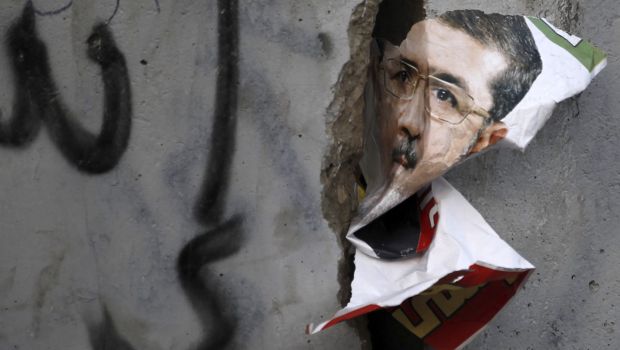In a ground-breaking statement, US Secretary of State John Kerry took us by surprise when he accused Egypt’s Muslim Brotherhood of stealing the revolution. Kerry changed both his stance and the stance of the US administration, which has long refused to acknowledge the removal of President Mohamed Mursi from power. It insisted on punishing the new regime, considering it to be illegitimate for having stolen power from an elected president—meaning from the Muslim Brotherhood.
This new position is a fine one, because the US Department of State can sum up history now by saying: The Egyptian army stole power from the Muslim Brotherhood, which stole the revolution from the people. Thus the contradiction in US policy towards Egypt no longer exists.
In a related development, Britain announced that it has lifted a ban on arms exports to Egypt.
The British government said that it would resume the delivery and sale of weapons to Egypt, following in the footsteps of the United States, which announced that it has delivered one of three military battleships that are set to sail to Egyptian waters immediately.
Why this change in the stance from the West?
I believe this is the normal consequence of the failure of the Muslim Brotherhood, which opposes the new regime, and the failure of the Brotherhood’s allies in persuading the West to continue supporting them.
Four months have passed since the ousting of the Brotherhood government and the imprisonment of Mursi. The situation has not changed on any level, be it popular or political. Other political forces in Egypt have continued to support the new regime, taking part in the drafting of constitutional amendments and preparing for the upcoming parliamentary elections.
The Brotherhood has succeeded in sustaining their protests in one city square. Many of their followers, some of whom are students, have also protested in universities, including Al-Azhar University. However, these demonstrations cannot be described as overwhelmingly popular protests. In this case, where is the alleged majority that supports the Muslim Brotherhood in Egypt, who should be taking to the streets? Where is the violence that the Brotherhood threatened the West with if the latter supported the “coup”? They vowed to burn Cairo down and draw blood in Europe, but they only succeeded in fighting limited battles in the desert of the Sinai Peninsula—and those battles do not affect the stability of the country. They didn’t carry out any external retaliation.
There is no doubt that the Russian leadership’s rush to embrace the new Egyptian regime has raised the West’s concerns, since the relations between Moscow and Cairo were strengthened by both open and secret meetings. This suggests that Egypt is gradually withdrawing from its closeness with the West.
While Egyptian relations with Moscow are forging new ground, the threats and sanctions of the US have failed to persuade the Egyptian leadership to return to the situation that preceded the month of July.
Western officials, such as Kerry, were forced to change their stances, trying to appease General Abdel-Fattah El-Sisi through statements describing the Muslim Brotherhood as “thieves.” The Brotherhood stole the revolution, but the army did not steal power. It is a clear diplomatic apology, but it is not enough. A comprehensive change is required to fully reverse the US’s previous policy. To do so, the sanctions on Egypt must be lifted and the flow of aid must be resumed.
